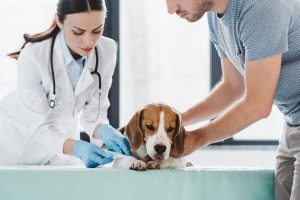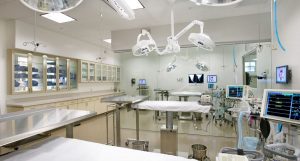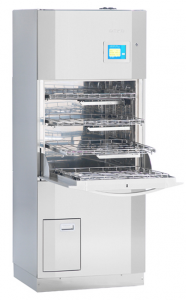 Protecting people from infection is discussed a lot, but it isn’t just humans who come into contact with contaminants. Pets do too. That is why it is vital that veterinary clinics do all they can to reduce the chance of infections spreading.
Protecting people from infection is discussed a lot, but it isn’t just humans who come into contact with contaminants. Pets do too. That is why it is vital that veterinary clinics do all they can to reduce the chance of infections spreading.
A vet’s clinic is a place where ill and immunocompromised pets receive treatment and stay to recover. If infections occur, they can have a significant impact on an animal’s health.
Many infections are preventable, and if all practice staff take an active role in carrying out infection control procedures, your practice can remain clean and safe for pet patients, their owners and the staff themselves.
To do this, establish a detailed infection control program that is easy to understand and carry out. This program should cover the following:
- How to decrease host exposure
- How to decrease host susceptibility
- How to increase host resistance
If you implement these three things, you are making your veterinary practice as safe as possible.
Decreasing Host Exposure
 To do this, you must identify possible sources of organisms. This could include skin, wounds, urine, saliva and blood. Ideally, you don’t want people or animals to get too close to these hosts. Obviously, this isn’t possible as you and your staff will come into close contact during examinations and treatments. However, you can take measures to decrease exposure. Train staff properly and make sure they understand infection control procedures.
To do this, you must identify possible sources of organisms. This could include skin, wounds, urine, saliva and blood. Ideally, you don’t want people or animals to get too close to these hosts. Obviously, this isn’t possible as you and your staff will come into close contact during examinations and treatments. However, you can take measures to decrease exposure. Train staff properly and make sure they understand infection control procedures.
Decreasing Host Susceptibility
Although exposure to pathogens doesn’t always mean the spread of infection, you should always consider what might lead to contamination. Hand contact, clothes, instruments, furniture and droplets can all spread harmful microorganisms. To reduce the risk, all staff should:
- Carry out proper hand hygiene.
Washing hands thoroughly with soap and water significantly reduces the risk of pathogens spreading
- Wear Protective Clothing
Wearing the proper PPE such as gowns, gloves and face protection prevents contamination of clothes and reduces accidental transmission of pathogens between patients and veterinary staff.
- Clean, Disinfect and Sterilise Properly
Organic matter should be quickly removed from surfaces and instruments immediately. You should also be clear about what cleaning products and detergents are suitable for surfaces and instruments. A washer disinfector should be used to ensure medical instruments and other apparatus are cleaned, disinfected and sterilised correctly.
Increasing Host Resistance
This is seen as the third line of defence, but it shouldn’t be ignored or downplayed. Ensure all animals and employees are up-to-date with their immunisations. Moderate the prescription of antibiotics and introduce anthelmintic therapy. All these things help increase resilience and control outbreaks.
We Understand Your Cleaning Needs
 Dekomed has been helping vets reduce the risk of contamination for over thirty years. Our range of washer-disinfectors are purpose-built for vets and ensures your reusable equipment remains safe to use on your animal patients.
Dekomed has been helping vets reduce the risk of contamination for over thirty years. Our range of washer-disinfectors are purpose-built for vets and ensures your reusable equipment remains safe to use on your animal patients.
With outstanding cleaning power, our washer disinfectors provide an efficient and powerful cleaning performance. A better cleaning routine frees up more time to train, learn and care for your animals.
Our service doesn’t end there. We also provide maintenance and support, ensuring your machine lasts longer and you don’t have to worry if a problem arises.
Our highly-trained engineers are on hand to fix any problem meaning your cleaning process won’t be disrupted.
For more information about any of our washer disinfectors, get in touch for an informal chat.
